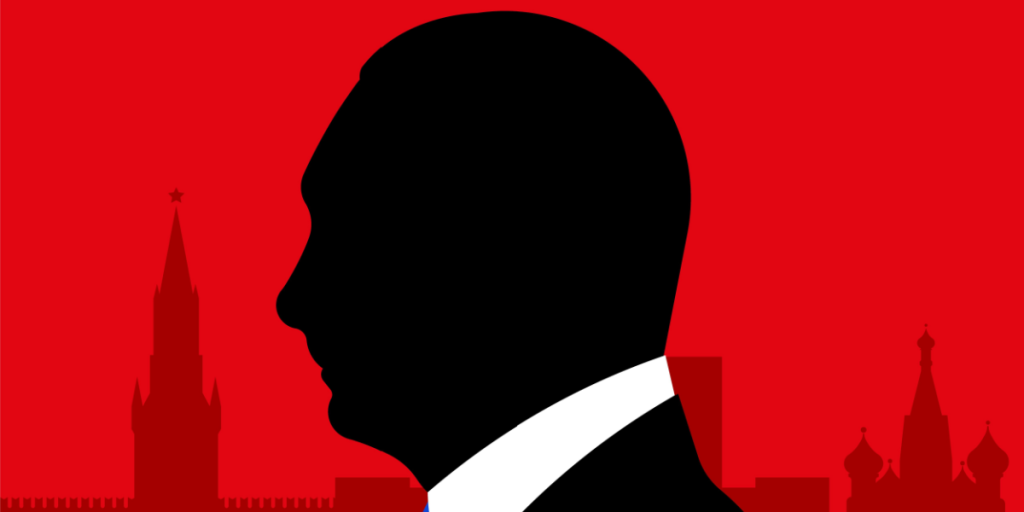The dissident does not believe it’s a matter of “if” the regime will fall – it’s a matter of “when”.
Others are reading now
From his base in London, Mikhail Khodorkovsky, one of Russia’s most famous political exiles, says the Kremlin’s days are numbered.
The former oil magnate, once imprisoned for over a decade, has been accused by Russia’s FSB of plotting to overthrow President Vladimir Putin.
The dissident insists the Russian president senses his downfall and that the regime’s deepest weakness is beginning to show.
Manipulative power
Khodorkovsky recently wrote an iNews commentary, in which he explains how he believes Putin’s defining trait is his habit of destroying political opponents under “non-political” pretexts.
The tactic, he argues, conceals the real nature of authoritarian rule in Moscow.
Also read
He says that economists Sergei Guriev and Daniel Treisman have previously described such rulers as “manipulative dictators” — leaders who disguise repression behind a façade of legality and patriotism. Khodorkovsky knows this first-hand.
After publicly calling Putin and his allies “thieves and corrupt officials,” he was arrested on what were widely viewed as fabricated economic charges.
His decade-long imprisonment, spent in remote penal colonies from the Mongolian to the Finnish border, nearly cost him his life.
Stabbings and hunger strikes
During those years, Khodorkovsky survived a stabbing by a cellmate and went on several hunger strikes that left him close to death.
“All of Russia and the world clearly understood that this was the persecution of a political opponent,” he says in his iNews piece. “But throughout my imprisonment, Putin stubbornly denied any political motivation behind my prosecution.”
Also read
Now, years after his release, Russia’s security services have once again turned their attention to him. Two weeks ago, the FSB accused Khodorkovsky and 22 members of the Russian Anti-War Committee — the movement he co-founded in 2022 — of plotting to seize power.
The official statement claimed they were preparing an “armed overthrow,” participating in a “terrorist organization,” and funding “Ukrainian nationalist paramilitary units.”
Kremlin alarm
Khodorkovsky dismissed the allegations as fabricated, saying the real trigger was political.
He pointed to the creation of a “Platform of Russian Democratic Forces” formed by exiled opposition figures within the Parliamentary Assembly of the Council of Europe (PACE) in October 2025.
According to him, this body was presented to Western governments as a “constituent assembly for the transition period” — a symbolic alternative to Putin’s regime.
Also read
The FSB’s sudden interest, he says, reflects the Kremlin’s alarm at this development.
“The scale of the operation suggests the decision came from the presidential level,” he said.
A symbolic breakthrough
For the first time since Russia’s suspension from PACE in 2022, the assembly voted to include representatives of the anti-war opposition rather than Putin’s officials.
Though largely symbolic, Khodorkovsky says the move carries serious implications.
“I have only one explanation,” he writes in iNews. “The international legitimacy of the Russian opposition could become a major factor in the event of a sudden change of power.”
Also read
He suggested that if Putin, now 73, were to die or become incapacitated, the country’s ruling elite would face an uncertain future.
With all key institutions — from courts to parliament — appointed by the Kremlin, an opposition recognized by Western democracies could become the only legitimate force in a post-Putin Russia.
The Achilles’ heel
That prospect, Khodorkovsky believes, terrifies the Kremlin more than any Western sanctions.
“Putin fears this more than Tomahawk cruise missiles,” he said.
The growing international recognition of Russia’s democratic opposition, he argues, is the regime’s true weakness.
Also read
He cannot predict when change will come but believes: “We now know the key weakness – the Achilles heel – of the Putin regime.”
He insists that Moscow’s frantic attempts to discredit opposition figures reveal deep anxiety inside the system.
“Their actions make one thing clear: the regime itself believes that it could happen very soon,” he said.
Sources: Ziare.com, iNews, Council of Europe, Reuters


